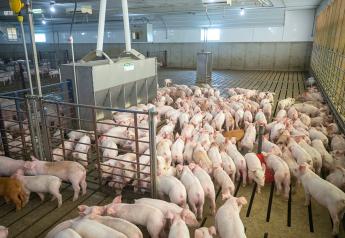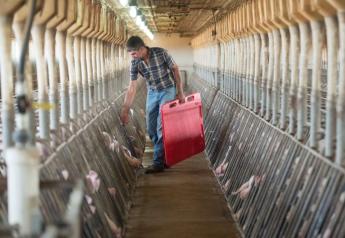Crop Insurance: Subsidy or Safety Net?

There’s no question farm programs like crop insurance have been hotly debated among lawmakers during initial farm bill discussions. Turns out, it’s a hot subject for farmers too. This week on AgriTalk, a handful of farmers shared their thoughts on crop insurance and let’s just say, their opinions range from those who want to get rid of the program to those who say they need it to survive.
The conversation began with an Iowa farmer named Dave, who called into the show. He would like to see crop insurance removed from the farm bill as a method to reduce supply.
“We’re in an oversupply market here and we have a perfect opportunity with this new farm bill to maybe quit contributing that to the oversupply problem,” he told AgriTalk host, Chip Flory. “Right here locally, we're probably looking at corn under $3. We're going to price beans [at] about $7 here before long. It's killing us. How about [we] forget about talking about tariffs and let's get rid of a bunch of this supply, which means we’ve got to get rid of crop insurance subsidy.”
According to Dave, crop insurance is the reason corn acres have expanded outside of traditional corn growing states over the past few years.
“We're paying the bill to subsidize the North Dakota, South Dakota, Kansas, Texas region to get crop insurance payments way more often than we do,” he said.
It’s unlikely any changes will be made to crop insurance, because the farm bill is already in conference and time is running out for lawmakers to come to an agreement before the September 30 deadline. But that didn’t stop Kansas farmer Marty from calling in to provide a rebuttal to Dave’s comments.
“We had a good corn crop, it's all in the bin, but a good crop for us is 100 bushels an acre. Leave crop insurance alone, because if we don't have crop insurance we can’t afford to make land payments, we can’t afford to make machinery payments,” he said.
According to Marty, in his area over the past 10 years farmers have only received a crop insurance payment twice.
“The problem is our guarantees are so low [that] at 75% you know--with a 65-bushel-per acre corn crop--you're not going to get a crop insurance payment on that,” he said.
Missouri farmer Eric agreed crop insurance has to stick around.
“I'm not a big fan of [it] at times either, but I'm in my lower 30s trying to grow a farming operation, and my banker won't loan me money if I don't have crop insurance backing me just to know that I might be able to pay my bills and pay my line of credit back,” he said. “At my age, not having a lot of equity and trying to grow and compete out there I just can't do it if I don't have crop insurance.”
According to Eric, who farms in northeast Missouri, even though his farm is diversified crop insurance is critical in a year like this one.
“We're just getting underway with corn harvest. Nothing to brag about, yields are probably going to average 100 bushel,” he said. “Just very slim pickings out there.”
Still, he may not receive a crop insurance payment.
“If you were to use the yield that we're currently getting, yes, we will receive some crop insurance payments,” he explained. “But we're spread out and we chose the enterprise portion of that this year, some of our farms will be better than others, but it's all going to average out.”
Eric said it’s important to note that not everybody receives a crop insurance payment every year.
“One day somebody is going to need it, next year somebody else is gonna need it,” he said.







